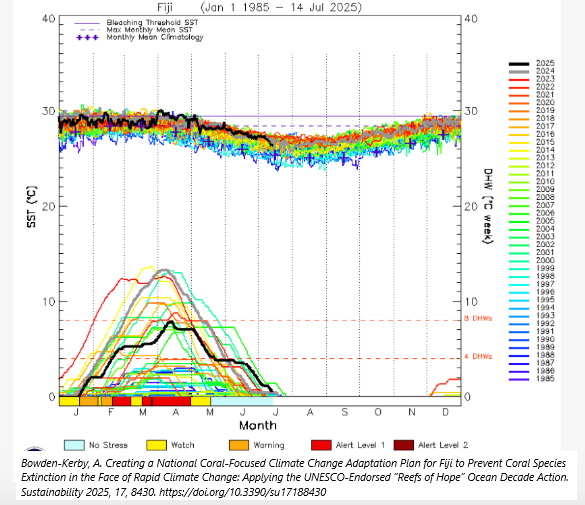
In the face of recent setbacks to coral reef conservation and restoration due to intensifying marine heat waves, new coral-focused strategies have been developed to accelerate natural processes of coral reef adaptation and recovery. In 2024, these “Reefs of Hope” strategies were endorsed by UNESCO as an Ocean Decade. This paper shares the progress made and methods used and translates the new paradigm into a proposed national coral-focused adaptation plan using Fiji as an example. The primary goal of any coral-focused adaptation plan should be to keep coral species alive despite increasingly lethal temperatures due to ocean warming and, in doing so, to retain as much genetic diversity as possible. This is done by translocating corals locally to secure cooler-water gene bank nurseries, with a focus on heat-adapted, bleaching-resistant corals, which are vital to adaptation. Secondary goals are to restore sexual reproduction to declining and rare coral species and to support natural larval-based recovery and adaptation processes via the creation of “regeneration patches”, which enhance and restore natural recovery processes while facilitating the spread of heat-adapted genetic diversity of both host and symbionts. The proposed plans create a new model of proactive coral-focused adaptation that other reef-owning nations might study, modify to national conditions, and seek funding to implement. These Fiji-based plans are now ready for the next step of national stakeholder input and refinements toward approval by the government and the coral reef conservation community.













